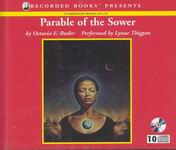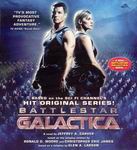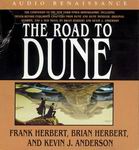

The bulk of an individual show would be just ‘talking heads’ – it was an interview format show with multiple celebrity guests of the best kind, mostly SF&F authors. Each guest would talk about the subject at hand with the interviews having been done at conventions, bookstores and the like – but I can’t stress enough just how each show was so narrowly focused on a specific theme in Speculative Fiction. Here’s just a few of the episodes subjects:
Alternate Histories, Religion, War, Dreams, Watchmen (yup a whole show on the Alan Moore comic series), Cyberpunk, World-Building, Death, Vampires, Dinosaurs, Metamorphosis, Mars and many more.
What made the show so endearing, besides the absolutely stunningly cool content, was the unrelentingly geek-o-serious production. The show’s host, played by comedian Rick Green, was supposed to be a frustrated über-geek named Commander Rick, who had, prior to the show starting, fled the earth in his homemade rocket (packed ful of books and comics). Unforunately for the Commander, he crashed into a television satellite, from which he now broadcasts his show. His only companion there is Nan-Cy, the sardonic artificial intelligent computer system that keeps Rick alive and relatively sane.
If this shows sounds interesting, or you’re feeling nostalgic, click on over to my good friend Rachelle Shelkey’s fansite, Signal Loss, and have a peek around. No official DVDs are available, but there’s a message board and episode trading might be doable now with the promulgation of cheap DVD-Rs. I myself am sending Rachelle my entire collection of VHS tape, in the hopes I will be getting some episodes I’ve never seen before. If you have some episodes contact Rachelle! If we can get enough people interested maybe we can get a complete series run!
Now for the audio|MP3|. It is the first 5 minutes from an episode of Prisoners Of Gravity on the subject of Science Fiction Fandom. Enjoy!






